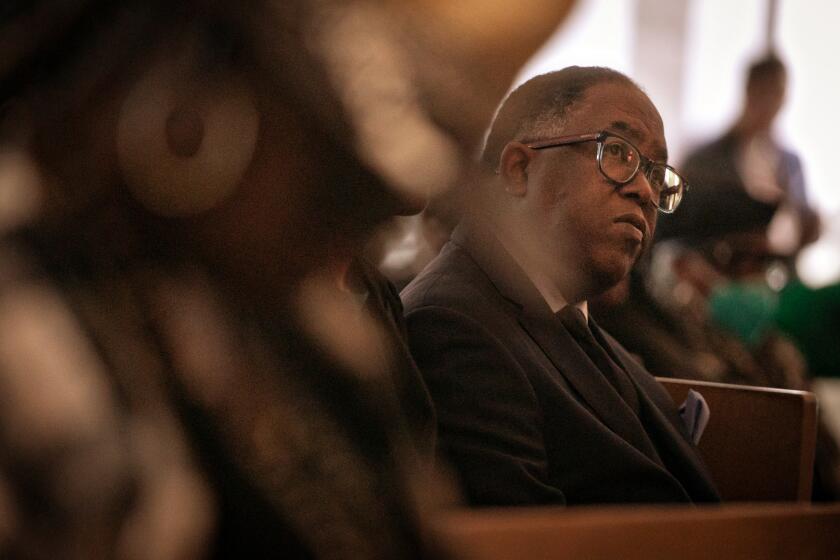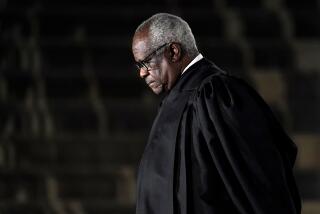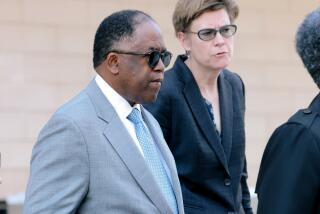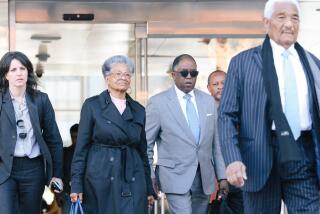Mark Ridley-Thomas asks to remain free while appealing corruption conviction
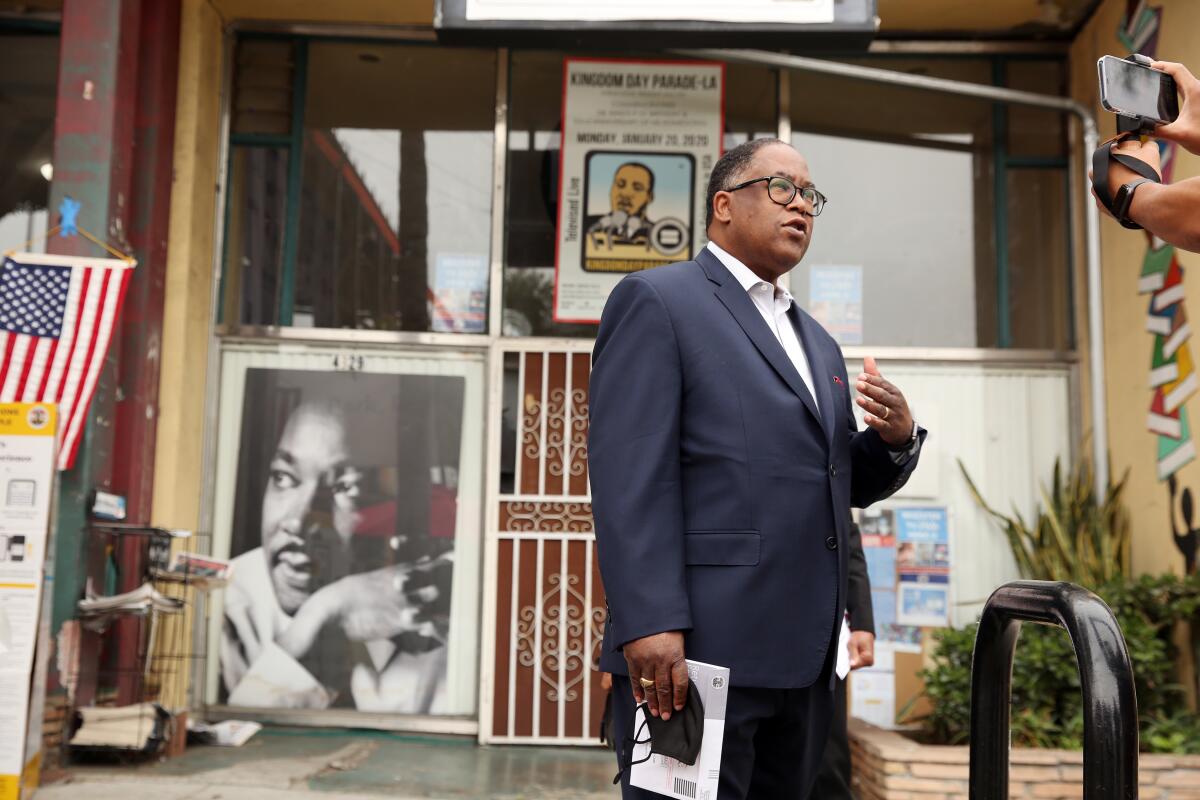
Mark Ridley-Thomas was once one of Los Angeles County’s most powerful politicians, with an undefeated record at the ballot box over three decades and a legion of allies across the state.
Then Ridley-Thomas, 68, was convicted in the spring on federal corruption charges. He now carries the federal Bureau of Prisons registration number 72570-509. He is due to surrender to U.S. marshals on Nov. 13 to begin serving 3½ years behind bars.
On Monday, Ridley-Thomas sought to delay his prison sentence while he fights to clear his name. He filed a motion asking U.S. District Judge Dale S. Fischer to allow him to remain free on bail while appealing his conviction before the 9th Circuit Court of Appeals.
“Dr. Ridley-Thomas faithfully observed the conditions of his bail for nearly two years while awaiting a decision from the jury,” his lawyers wrote in the 48-page motion. “The same would be true pending a decision on appeal.”
Although Ridley-Thomas has assembled a new legal team, including UC Berkeley Law School Dean Erwin Chemerinsky and Paul Watford, a former judge on the 9th Circuit Court of Appeals, this motion was filed by the same defense attorneys at Morrison & Foerster LLP who represented him during his criminal trial.
By any measure, the motion is a long shot, as it is before Fischer — the same judge who presided over Ridley-Thomas’ trial and sentenced him to prison for 42 months. But the motion kicks off an appellate process that could last years. Defense lawyers requested an Oct. 30 hearing. If Fischer denies the motion, Ridley-Thomas will likely appeal that ruling.
The U.S. attorney’s office in Los Angeles, headed by Martin Estrada, an appointee of President Biden, did not comment on the new filing.
To obtain bail pending appeal, Ridley-Thomas must show that his appeal raises a “substantial question of law or fact” that is likely to result in the conviction being overturned or a new trial granted.
In their filing, defense attorneys asserted more than a dozen such questions of law or fact in Ridley-Thomas’ trial, starting with the process of selecting jurors who ultimately convicted him of bribery, conspiracy and one count of honest services mail and four counts of honest services wire fraud. The jury also acquitted the former lawmaker of 12 counts of honest services fraud.
Defense attorneys contend that during the jury selection process, prosecutors “disparately questioned Black jurors, particularly Black women jurors,” and asked Black jurors open-ended questions seemingly designed to provide “pretextual reasons” for ousting them from the panel. Half of the potential jurors whom prosecutors opted to eliminate were Black, “including all the Black female jurors,” the defense noted.
Even the judge appeared concerned by the prosecutors’ decision to eliminate some jurors, Ridley-Thomas’ lawyers suggest, with Fischer remarking, “Why are you trying to build error into this case?”
Defense lawyers argue that when they alleged prejudice against the two prospective Black female jurors, Fischer erred in not fully analyzing the facts before determining there was no purposeful discrimination.
The defense team also zeroed in on the instructions provided to the jurors during their deliberations. They argued that there were substantial legal issues over the presence — or absence — of certain verbiage that shaped how jurors evaluated the case and arrived at their verdict.
A judge sentenced the longtime L.A. politician to 3½ years as a deterrent to government corruption. Some still argue he shouldn’t have been charged.
The motion also restates arguments that defense attorneys made as part of their unsuccessful effort to seek a new trial or secure an acquittal. Among them: that the “official act” required to prove honest services fraud was not actually an official act under the law — since it occurred when Ridley-Thomas, as a member of the L.A. County Board of Supervisors, voted on a so-called consent calendar, when several noncontroversial items are grouped together and approved as a package.
“It was the government’s burden to establish that failing to object to an Item passing on the consent calendar could constitute an official act, not Dr. Ridley-Thomas’s burden to prove that it couldn’t,” his defense team wrote.
Fischer had previously scoffed at the argument that a consent calendar vote was not actually a vote. She had ruled that there was “no reason to conclude that a vote on a ‘non-controversial’ matter through a streamlined parliamentary process should count as less of an ‘official act’ than any other vote by a public official.”
More to Read
Sign up for Essential California
The most important California stories and recommendations in your inbox every morning.
You may occasionally receive promotional content from the Los Angeles Times.
